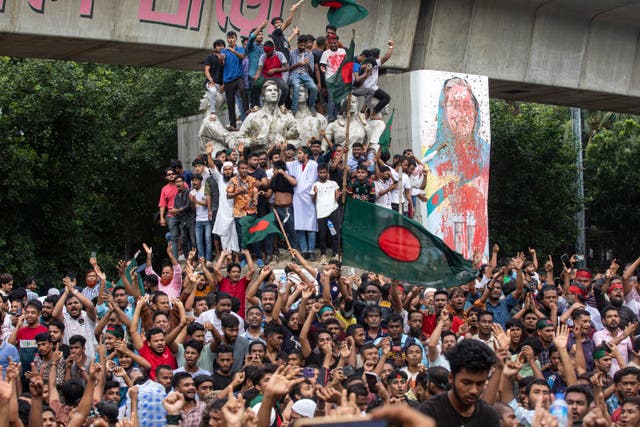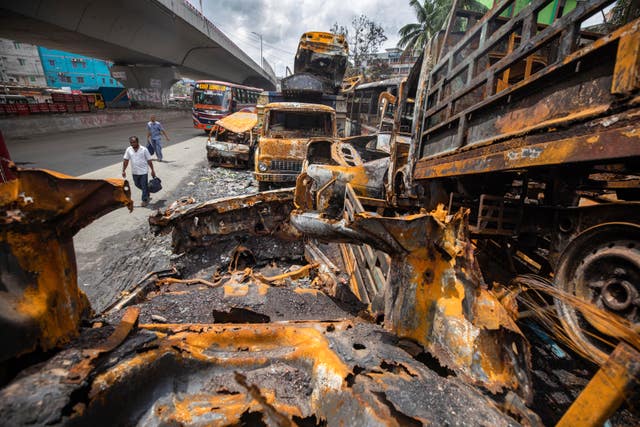Murder case filed against former Bangladeshi PM over shop owner’s death
Sheikh Hasina stepped down and fled the country on August 5 following protests by students and other demonstrators.

Police are investigating a murder case filed against Bangladesh’s former prime minister Sheikh Hasina and other officials over the killing of a grocery shop owner during student protests in July, authorities have said.
SM Amir Hamza, described as a “well-wisher” of store owner Abu Sayeed, filed the case at the court of Dhaka Metropolitan Magistrate Rajesh Chowdhury on Tuesday.
Mr Hamza said Mr Sayeed was killed on July 19 amid clashes during the student-led uprising, and that he had filed the case because Mr Sayeed’s family did not have the capacity to seek justice.
Ms Hasina, who stepped down and fled the country on August 5, was named as a suspect in the petition together with six other people including former home minister Asaduzzaman Khan, general secretary of then-ruling Awami League party Obaidul Quader, and top police officials.

This is the first case against Ms Hasina, and more cases are likely to be filed.
The development came amid calls by student protesters to charge Ms Hasina and her supporters with murder for the deaths of more than 300 people including students and civilians during weeks of violence since July 15.
The uprising forced Ms Hasina to leave office and flee to India, ending a 15-year rule that turned increasingly autocratic, her critics say.

On Thursday, Muhammad Yunus, a Nobel peace laureate, was sworn in as interim leader.
Sixteen people, including two student protest leaders and others drawn mainly from civil society, were included in his interim Cabinet.
The new Cabinet members were chosen after talks between student leaders, civil society representatives and the military.
Ms Hasina and her party’s many top leaders have either gone into hiding or have been barred from leaving the country.

Ms Hasina, 76, was elected to a fourth consecutive term in January, but the vote was boycotted by her main opponents, with thousands of opposition activists detained beforehand.
The US and UK denounced the result as not credible.
Ms Hasina’s critics say her administration was increasingly marked by human rights abuses and corruption.
The chaos on Bangladesh’s streets continued after her resignation. Dozens of police officers were killed, prompting police to stop working across the country. Police officers have gradually returned to work.





